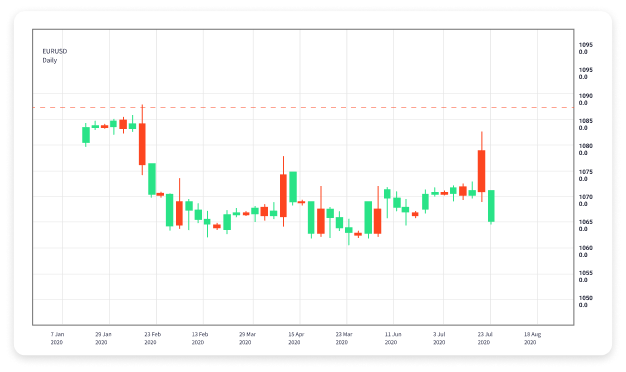
In today’s financial landscape, currency trading forex Forex Brokers in Kuwait play a pivotal role in helping traders engage in currency trading. Understanding the intricacies of foreign exchange (Forex) trading is vital for anyone looking to capitalize on the opportunities it presents. This article aims to provide a comprehensive overview of currency trading in the Forex market, incorporating essential strategies and insights to help traders navigate its complexities.
Understanding the Forex Market
The Forex market is the largest and most liquid financial market in the world, with a daily trading volume exceeding $6 trillion. It operates 24 hours a day, five days a week, accommodating a multitude of global currencies. Currency trading involves the buying and selling of currency pairs, where one currency is exchanged for another. The goal is to profit from changes in exchange rates.
What Drives Currency Prices?
Currency prices are influenced by various factors, including economic indicators, geopolitical events, and market sentiment. Key economic indicators such as interest rates, inflation, and employment data play a significant role in determining the strength of a currency. For instance, a country with a robust economy is likely to see an appreciation in its currency value. Conversely, political instability or poor economic performance can lead to depreciation.
Major Currency Pairs
In Forex trading, currencies are often traded in pairs. The most commonly traded pairs are known as major currency pairs, which include:
- EUR/USD (Euro/US Dollar)
- USD/JPY (US Dollar/Japanese Yen)
- GBP/USD (British Pound/US Dollar)
- USD/CHF (US Dollar/Swiss Franc)
These pairs are favored due to their high liquidity and narrow spreads, making them ideal for both novice and experienced traders.
Trading Strategies in Forex
To succeed in Forex trading, it is essential to develop a solid trading strategy. Here are some popular strategies employed by traders:
1. Day Trading
This strategy involves making multiple trades within a single day, aiming to profit from small price movements. Day traders often rely on technical analysis and chart patterns to make quick decisions.
2. Swing Trading
Swing trading focuses on capturing larger price movements over several days or weeks. Traders use a combination of technical and fundamental analysis to identify potential market trends.
3. Position Trading

This long-term strategy involves holding positions for an extended period, often based on fundamental analysis and macroeconomic trends. Position traders are less concerned with short-term fluctuations.
Utilizing Technical Analysis
Technical analysis is a crucial component of Forex trading. Traders analyze historical price charts and various indicators to forecast future price movements. Common indicators include moving averages, Relative Strength Index (RSI), and Bollinger Bands. Understanding these tools can significantly enhance a trader’s decision-making process.
Risk Management in Forex
Effective risk management is vital for long-term success in Forex trading. Traders should implement strategies to safeguard their capital, such as:
- Setting stop-loss and take-profit orders
- Using proper position sizing
- Diversifying trading portfolios
By managing risk, traders can minimize potential losses and maximize their chances of success.
The Importance of a Trading Plan
A well-defined trading plan is essential for any successful Forex trader. It should outline the trader’s goals, risk tolerance, and specific strategies for entering and exiting trades. A trading plan helps maintain discipline, especially during periods of market volatility.
The Role of Leverage in Forex Trading
Leverage allows traders to control a larger position with a smaller amount of capital. While leverage can amplify profits, it also increases the risk of significant losses. Traders should use leverage cautiously and understand the implications it has on their trading strategy.
Psychology of Forex Trading
The emotional aspect of trading cannot be underestimated. Fear and greed can cloud judgment and lead to impulsive decisions. Successful traders develop mental discipline and emotional resilience to stick to their trading plans, even during challenging market conditions.
Choosing the Right Forex Broker
Selecting a reputable Forex broker is critical for a trader’s success. Factors to consider include regulation, trading platform, spreads, and customer service. It’s advisable to conduct thorough research and read reviews to find a broker that best fits one’s trading needs.
Conclusion
Currency trading in the Forex market offers vast opportunities for those willing to educate themselves and practice disciplined trading strategies. By understanding the market dynamics, employing effective risk management techniques, and staying informed about global economic developments, traders can enhance their chances of success. Additionally, utilizing robust trading platforms and adhering to a well-defined trading plan can significantly impact overall trading performance. As you embark on your Forex trading journey, remember to remain patient, adaptable, and continually strive to improve your trading skills.
Tinggalkan Balasan